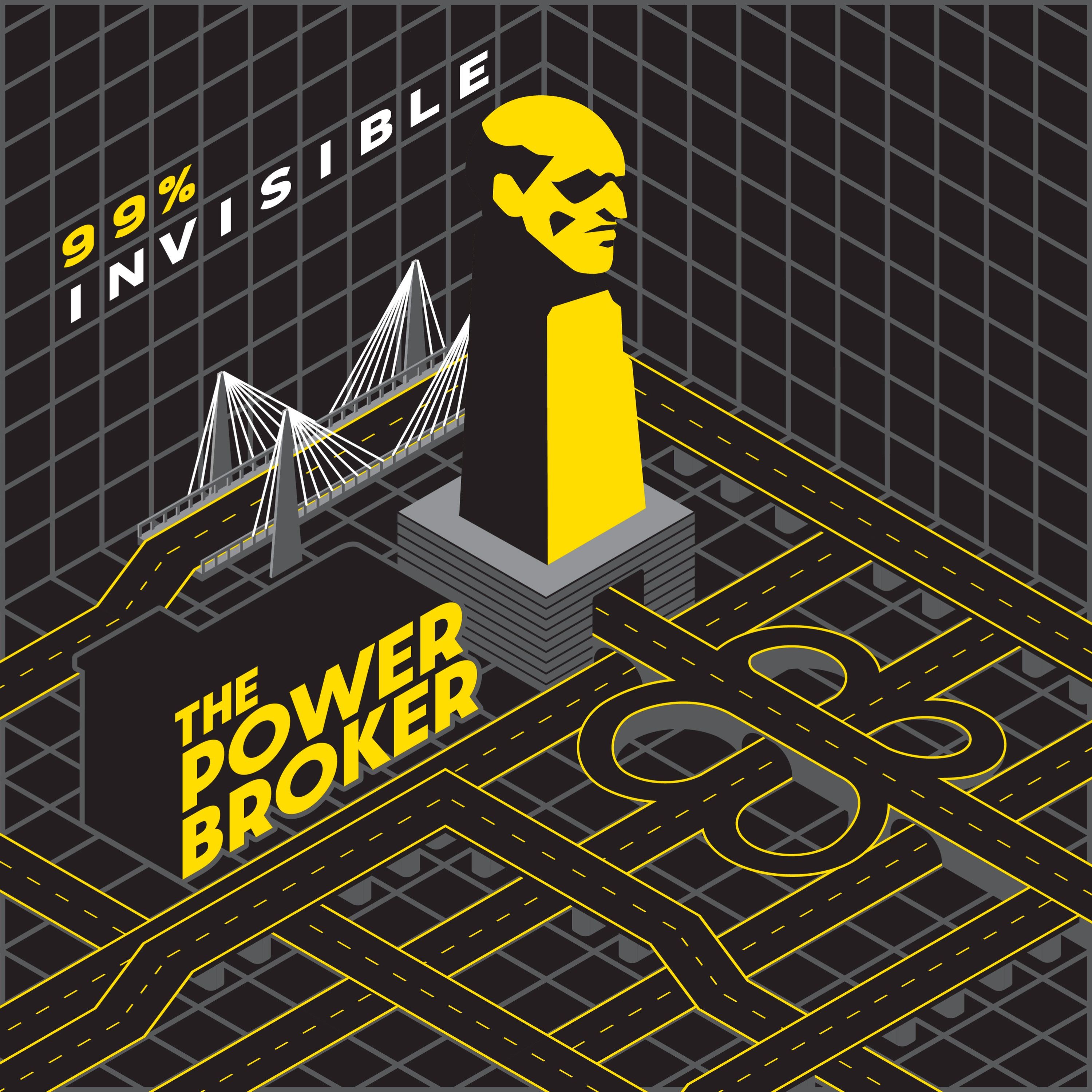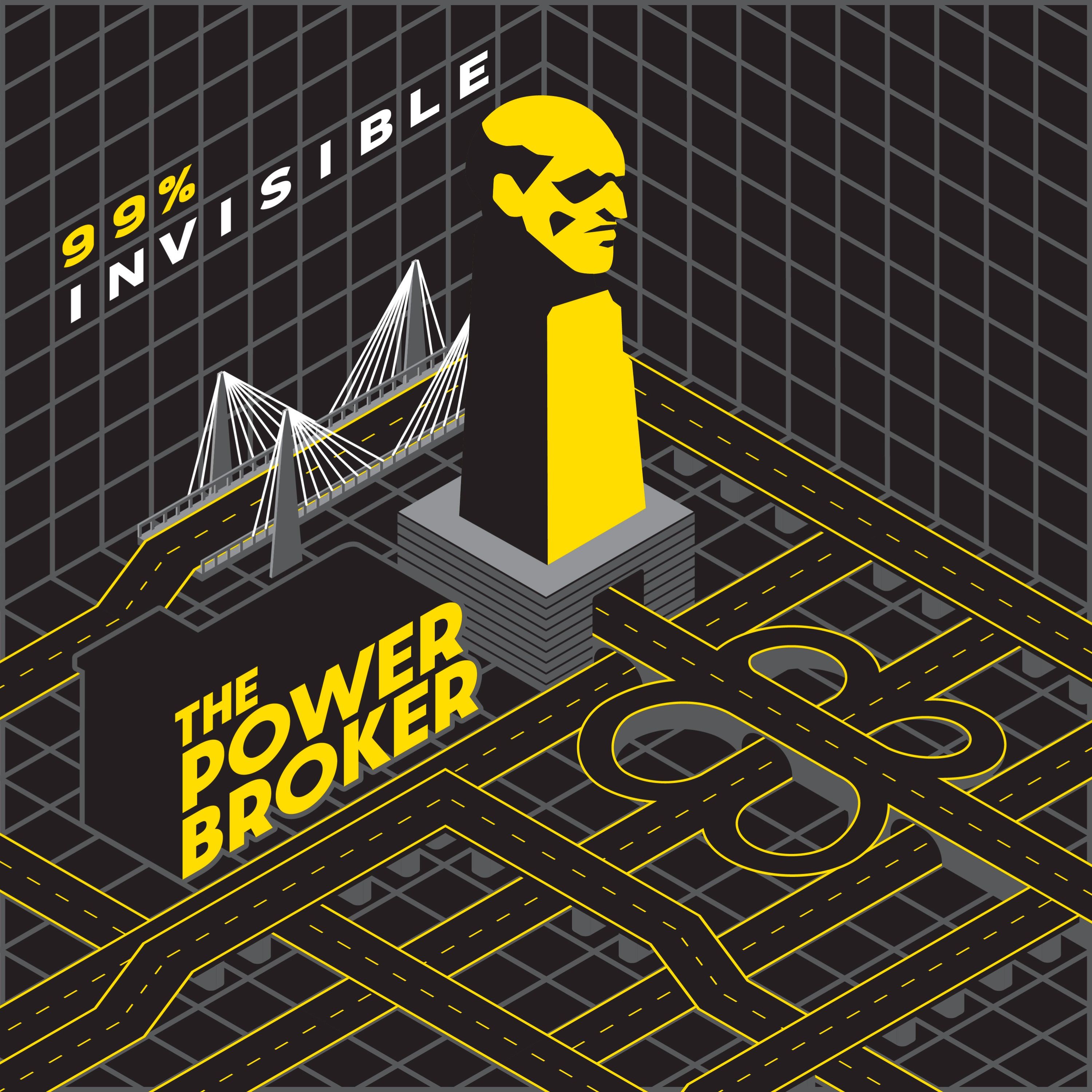Episodes
-
Situated right in downtown Mumbai, India is an area of about 55 acres of dense, overgrown forest. In one of the most populous cities in the world, this is a place where peacocks roam freely -- a space out of time. This forest is protected by a religious community. It has survived in a relatively undeveloped state in the middle of this gargantuan city. Importantly, it’s also home to an ancient tradition in crisis -- one that is central to the lives (and deaths) of a particular population.
There’s a certain point in this forest beyond which almost no one can step -- only special caretakers of these grounds can go any further. They go by many names: khandia, nassassalar, pallbearer, corpse bearer. Their work here is holy. They carry dead bodies to their final resting place – atop stone structures that stand gray against the lush green. These buildings are called Towers of Silence.
-
This is the fourth official episode, breaking down the 1974 Pulitzer Prize winning book, The Power Broker by our hero Robert Caro.
Roman and Elliott also sit down with Rep. Alexandria Ocasio-Cortez, the U.S. representative for New York's 14th congressional district, who describes the lasting impact Moses’ highways have made on her district, and her own philosophy when it comes to political power and bringing ambitious projects to life.
On today’s show, Elliott Kalan and Roman Mars will cover the second section of Part 4 of the book (Chapters 16 through the end of Chapter 20), discussing the major story beats and themes.
-
Missing episodes?
-
This week we're featuring an episode from The Sporkful's series on the creation of "Anything's Pastable," Dan Pashman's new pasta cookbook.
Dan talks with Roman about how this massive project came to be and all the design decisions required to put together a cookbook.
And then, in part two of “Anything’s Pastable,” Dan embarks on an epic trip across Italy in search of lesser-known pasta dishes — and to learn about the evolution of pasta more broadly. He starts in Rome, where food writer Katie Parla reveals a shocking truth about pasta. Then an Italian food historian challenges Dan’s thinking about carbonara. Finally, he heads south to meet a chef who was there when a regional specialty called spaghetti all’assassina (“assassin’s spaghetti”) was invented. All of this leads Dan to wonder: What does evolution look like in a food culture that’s so often depicted in sepia tones? And what’s his place in that process?
Preorder Dan’s cookbook today (including signed copies), and see if he’s visiting a city near you on his tour of book signings and live podcast tapings with special guests! Follow Dan on Instagram to see photos and videos from the Anything’s Pastable journey.
-
Hailing from central African cities of Brazzaville and Kinshasa, sapeurs have become increasingly recognizable around the world. Since the 1970s, sapeurs (from: le sape, short for "Société des Ambianceurs et des Personnes Élégantes") have been known for donning technicolored three-piece suits with flamboyant accessories like golden walking sticks and leopard-print fedoras, and then cat-walking through their city streets.
In recent years, Solange, Kendrick and SZA have all featured sapeurs in their music videos. The iconic British menswear designer Paul Smith did a whole spring line of sapeur-inspired suits and bowler hats.
-
A chambre de bonne is usually one small room, on the top floor of a five- or six-story apartment building, and it’s usually just big enough to fit a bed and a table. It’s affordable housing in a city where finding housing is nearly impossible. Reporter Jeanne Boëzec tells about the history of the chambre de bonne apartments, and how while cute, they are also cramped and can be unpleasant spaces for people who have to live there, a living embodiment of the gap between the rich in Paris and everyone else.
-
This is the third and final episode in a three-part series of Roman Mars recording on-location guides to the design features and interesting spots in cities he loves.
Roman moved to Athens, Georgia, to pursue a PhD in plant genetics, but dropped out and got into the local music and art scene instead, and started making his way toward radio.
Roman Mars Describes Athens GA As It Is
Note: This series is made possible by the all-new 2024 Lexus GX and SiriusXM.
-
A few years back, journalist Lauren Ober was diagnosed with autism. She then made a podcast about her experience called The Loudest Girl in the World. And she found herself imagining a fantasy world where everything is tailored to Lauren’s very specific autistic needs. And she called this magical imagined place, wonderfully devoid of overwhelming stimuli "Autism Pleasantville."
"Obviously," Ober notes, "there’s not a one-size fits all diagnosis or even definition of autism ... as the autism adage goes: 'If you know one autistic person…you know one autistic person.' But despite our wide variety of needs, I wanted to know how design is evolving to better accommodate us" -- how were ideals being handled in the real world.
-
In the middle of the 20th century, the small town of Jasper, Indiana did something that no other city had done before: they made garbage illegal. The city would still collect some things, like soup cans and plastics, but yucky junk, like food waste, wouldn't get picked up.
This change was made possible by a new appliance: the garbage disposer – that little grinding machine at the bottom of a lot of kitchen sinks.
-
This is the third official episode, breaking down the 1974 Pulitzer Prize winning book, The Power Broker by our hero Robert Caro.
Blank Check podcast co-host and The Atlantic movie critic David Sims is our book club guest.
On today’s show, Elliott Kalan, Roman Mars, and David Sims will cover the first section of Part 4 of the book (Chapters 11 through the end of Chapter 15), discussing the major story beats and themes.
-
This year marks the 40th anniversary of a lot of landmarks in pop culture, especially sci-fi and fantasy. So many franchises were born in 1984. Some came to define the genre or invent new genres. The great podcast Imaginary Worlds noticed this and produced a three-part series about 1984's Cambrian explosion of creativity that landed on the big screen, the small screen, bookstore shelves and, of course, the toy store.
In this episode we learn about at two iconic franchises that launched in 1984: Transformers and Teenage Mutant Ninja Turtles. They came from opposite ends of the business spectrum. Transformers was a top-down marketing synergy between American and Japanese toy companies along with Marvel Comics to compete against He-Man -- another TV toy behemoth. Teenage Mutant Ninja Turtle would eventually rival them in cultural dominance, but it began with two indie comic book creators making a black and white comic as a lark. But Turtles and Transformers both ended up wrestling with similar questions around what happens when you put the cart before the horse in creating content to sell products.
-
Intimidating Proposition 65 warnings can be found on all kinds of products manufactured or distributed in the State of California. They can seem rather terrifying at first, but within the state, they are ubiquitous, on everyday objects from power tools to potato chips, dietary supplements, leather jackets, gas pumps, coffee tables, the list goes on. All of which raises the question: if these labels are on so many things, are they actually useful in warning us of real dangers?
-
Roman Mars is on a mission to describe the cities that shaped who he is and how he thinks about design. Next up, Santa Fe.
Santa Fe wasn’t always on the proverbial map — in fact, the Santa Fe railroad just passed it on by. A lot of care has been taken to keep Santa Fe cute and quaint over its history, with steps to preserve native architecture and historical design. The result is a mixture of structures old and new, but mostly made to look old, for better or worse.
Roman Mars Describes Santa Fe As It Is
Note: This series is made possible by the all-new 2024 Lexus GX and SiriusXM.
-
Since the mid-1970s, almost every jazz musician has owned a copy of the same book. It has a peach-colored cover, a chunky, 1970s-style logo, and a black plastic binding. It’s delightfully homemade-looking—like it was printed by a bunch of teenagers at a Kinkos. And inside is the sheet music for hundreds of common jazz tunes—also known as jazz “standards”—all meticulously notated by hand. It’s called the Real Book. But if you were going to music school in the 1970s, you couldn’t just buy a copy of the Real Book at the campus bookstore. Because the Real Book... was illegal. The world’s most popular collection of Jazz music was a totally unlicensed publication. The full story of how the Real Book came to be this bootleg bible of jazz is a complicated one. It’s a story about what happens when an insurgent, improvisational art form like Jazz gets codified and becomes something that you can learn from a book.
This episode originally aired in April 2021
Roman note: I love this episode. An all time favorite. Pass it along to someone jazzy if so inclined.
-
It’s been said that history is written by the person at the typewriter. But who did the person who made history depend on? Often, it’s impossible to find out. But once in a while, we get lucky, and the story was not only recorded, it’s really good.
Well that’s what this podcast is all about. “Significant Others” is a show that tells a story you might not know about a person you probably do.For example, in this episode we explore how Benedict Arnold might never have turned on his country were it not for his wife, Peggy, who influenced his betrayal.
Head over to Significant Others to listen to the rest of the episode and to other stories like how Amelia Earhart would neither have found fame nor, possibly, disappeared over the Pacific, had it not been for her husband, George Putnam, or who is really to blame for Friedrich Nietzsche’s connection to Nazism. Listen and subscribe to “Significant Others” wherever you get your podcasts.
-
What we see on screen has this way of influencing our perception of the world, which makes sense because the average American spends 2 hours and 51 minutes watching movies and TV each day. That’s a whopping 19 percent of our waking hours. Walt Hickey is a data journalist and author of a new book called You Are What You Watch. In it, Walt makes a case for how much film and television shapes us as individuals and as a society, far beyond what we give it credit for.
-
This is the second official episode, breaking down the 1974 Pulitzer Prize winning book, The Power Broker by our hero Robert Caro.
New York Times political columnist Jamelle Bouie is our book club guest.
On today’s show, Elliott Kalan and Roman Mars will cover Part 3 of the book (Chapters 6 through the end of Chapter 10), discussing the major story beats and themes, with occasional asides from Jamelle Bouie guiding us through the politics of the era.
-
White Castle has its own take on fast food hamburgers. For starters, the patties are square, with five holes in each patty. And they’re small, too –- two-and-a-half inch sliders. Just big enough to fit into the palm of your hand. And since they’re steamed on a bed of onions, everything is infused with this very specific onion-esque flavor.
Today, White Castles can be hard to find, depending on where you live. But KCUR's Mackenzie Martin, a producer at A People's History of Kansas City, says that it’s time to stop thinking of White Castle as a semi-obscure cultural punchline, because over a century ago, White Castle invented something that became so important and all-encompassing that, today, it touches pretty much every person in America. Sometimes several times a day. Something that, in other countries, has almost come to define American culture: it has a strong claim to being the first fast-food restaurant.
-
Seen from above, Sofia, Bulgaria, looks less like a city and more like a forest. Large "interblock park" green spaces between big apartment structures are a defining characteristic of the city. They're not so much "parks" in the formal sense, with fences and gates, just open green areas growing up in interstitial spaces left behind.
But as green as it still looks today, Sofia used to be even greener. Since the fall of Bulgarian communism in the late 1980s, Sofia has lost more than half of its green space. To understand why, one has to look back to how the city evolved and grew in the Soviet era.
-
When a highway gets made, there’s a clear and consistent process for doing so. Not so, public memorials. From the Vietnam Wall to the National Memorial for Peace and Justice, it’s always different. Sometimes a handful of concerned citizens get together and make it happen. Sometimes a nonprofit pushes for it, or a foundation. There’s usually a lot of activism, and a lot of fraught conversations – about design, location, the story it should tell about what happened, and who it affected.
And how does one memorialize such a vast and distributed tragedy like COVID-19, which was devastating physically but also divisive politically?
-
A few years ago, at the very start of the pandemic, Roman Mars wrote an episode of 99pi in which he simply talked about design details in his house -- realizing that he, like the audience, didn't have many other places to go. (You should check it out. It's called "Roman Mars Describes Things As They Are"-- it’s a real time capsule and a fan favorite.) Since then, he's been thinking about and wanting to record a companion episode out in the world.
Over the next couple months, he's going to three cities that shaped who Roman is and how he thinks about design. We'll start in Chicago.
Chicago is a design lover's paradise, from its carefully thought-out original grid to its exceptionally stellar flag design. The city is home to some of the most influential architecture in the US as well.
Roman Mars Describes Chicago As It Is
Note: This series is made possible by the all-new 2024 Lexus GX and SiriusXM.
- Show more









